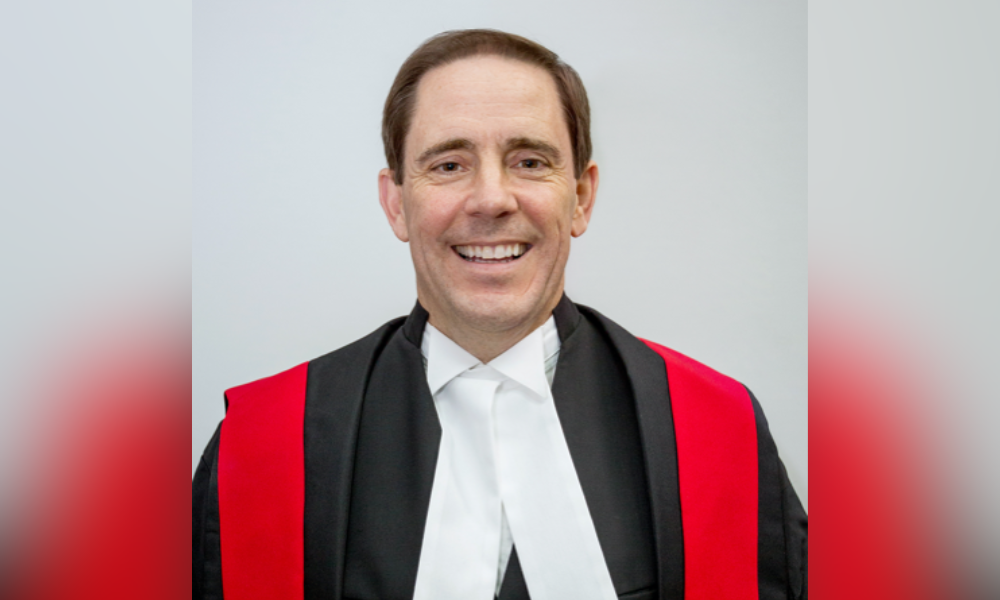
Review committee will investigate judge's comments made during sexual crimes trial

Nova Scotia provincial Judge Alain Bégin of Truro is under investigation after making comments about a defendant’s character during a sexual assault trial and attempting to cover up those comments on appeal. A review committee from the Nova Scotia Judicial Council will investigate Judge Bégin’s remarks and his conduct, where he claimed his comments calling the defendant a “deviant” were off the record.
It’s behaviour that Justice Peter Bryson called “astonishing” in a Nova Scotia Court of Appeal decision. The trial conviction was overturned, and a new trial was ordered. Chief Judge Perry Borden of the Provincial Court referred the matter to the Judicial Council. The review committee members, who haven’t been announced yet, will consist of one provincial judge, a public representative and a lawyer.
In the Court of Appeal decision, Justice Bryson wrote, “The judge’s startling language and behaviour gives rise to a reasonable apprehension of bias and offends judicial impartiality, the presumption of innocence, the open court principle, the right to make full answer and defence, and could have frustrated appellate review.”
The case involves a stepfather, K.J.M.J., who is accused of sexually assaulting his stepdaughter. Before closing arguments in the trial, Judge Bégin told the defendant he had “no doubt in my mind” that the accused had “sexual deviance issues.” After the defendant responded, Judge Bégin said, “Don’t argue with me because I know I’m right. This is what I do for a living.” Judge Bégin stated the defendant was guilty of one count but wasn’t sure about the others. “Did something happen? Absolutely. Do I know exactly what happened? No.”
Judge Bégin instructed the transcriptionist not to include his comments in transcripts because they were “off-the-record.” The defendant was found guilty on all counts and appealed the decision.
Things took a “remarkable” turn when Judge Bégin wrote to counsel explaining why the comments would not be accessible. All trial proceedings are recorded, and the Nova Scotia Court of Appeal tried to access the recording only to find the comments expunged. In his email, Judge Bégin claimed that his comments were not part of the court record, that his consent was needed for his comments to be added, and that any attempt to include the comments was a “breach of basic legal principles.”
The Court of Appeal disagreed, overturning the conviction and ordering a new trial.
Justice Bryson wrote, “No authority is cited for these astounding propositions because there is no such authority.” The court found the comments made in open court were clearly part of the public record, and any attempt to keep those comments out was against the open court principle.
“How could an objective observer have confidence in the enduring impartiality of a trial judge who expressed opinions and findings of fact fundamental to guilt prior to final argument?” wrote Justice Bryson. “How could an objective observer have confidence the judge retained an open mind?”
Mike Dull advocates for sexual assault survivors and has been working in litigation for nearly 15 years. He says it’s important to serve the needs of survivors and deal with these cases carefully.
“I have clients who went through the civil route and the criminal route, and all of them have said they were disappointed by the criminal justice system,” says Dull, a litigation lawyer and founding partner at Valent Legal. “You have autonomy and control in a civil trial. You control the pace, and for survivors, going through the process can be healing. You don’t have that in a criminal proceeding. I’ve heard from survivors that it’s like being a witness to their own crime.”
Training and support for sexual assault survivors has been an ongoing issue. In 2021, the Judges Act was amended to include mandatory training for new provincial and territorial judges regarding sexual assault law. Judge Bégin, who was called to the bench in 2016, would not have been required to take training.
“If you want the privilege of working with survivors, you have to have a trauma-informed approach to do this work,” says Dull. “The judge probably thought he was helping but because of his rush to judgment, now there has to be a new trial. For the survivor, that’s the biggest tragedy.